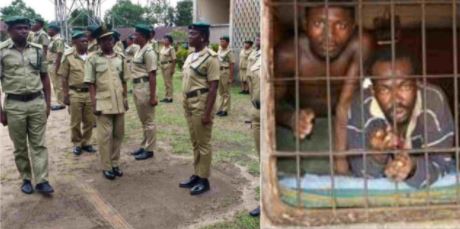The Prisoners Rehabilitation and Welfare Action (PRAWA) has held more than 30 training sessions on non-custodial measures for convicted criminals.
The Executive Director of PRAWA, Dr Uju Agomo, made the disclosure in an interview with the News Agency of Nigeria (NAN) in Lagos.
She spoke on the impact of COVID-19 pandemic on activities of PRAWA as it related to the welfare of prisoners across the nation.
She said that although PRAWA had its share of challenges occasioned by COVID-19, it had continued to make remarkable progress.
According to Agomo, during the COVID-19-induced lockdowns, PRAWA embarked on training on the use of non-custodial sentences.
She added that PRAWA deployed technology to mitigate the effects of the lockdowns and other restrictions due to COVID-19.
Agomo said that judges and magistrates also benefited from the training.
“With the lockdown and other limiting developments, we realised that it was a period our work and services were required most, because no matter the situation, promotion and protection of human rights cannot be suspended.
“PRAWA had to devise creative means of reaching its primary constituencies, and this included the use of technology; examples are use of tele-counseling for ex-inmates and online training for security and justice stakeholders,” she said.
Agomo said that PRAWA’s interventions were supported by the British Council’s Rule of Law and Anti Corruption (RoLAC) Programme.
She said that the interventions included promotion of e-visits for inmates which, she said, was piloted in 15 custodial centres selected from Abia, Enugu, Kano, Lagos, Rivers, Niger and the Federal Capital Territory.
According to her, PRAWA also made media advocacy a key component of its work and engaged in advocacy for decongestion of custodial centres and release of low risk offenders as well as use of non-custodial measures for minor offenders.
“In utilising technology, PRAWA also introduced virtual visits; this is for families and legal representatives to inmates, to promote efforts at curbing the spread of the virus.
“Our intervention on this was supported by the Open Society Initiative for West Africa.
“However, having learned from the experiences of the lockdown, we started introducing initiatives that will help to deal with situations where physical human interaction is limited that can facilitate easy access to justice and especially deal with the challenges of a high number of awaiting trial persons in our custodial facilities,” she said.
Agomo said that PRAWA had other interventions lined up, including continued push for implementation of the Nigerian Correctional Service Act of 2019 especially the section on early warning signal to relevant justice institutions whenever a custodial centre could exceed its capacity.
“This is about putting in place strategies for effective and efficient implementation of Section 12 (4-12) of the Act; already, we have an intervention on this, implemented in partnership with NGOs across the 36 states of the federation and the FCT.
“There is also this issue of a bill sent to the National Assembly to repeal a section of the Nigerian Correctional Service Act, 2019; the Act is a very progressive piece of legislation that many countries are celebrating,” she said.

 Health1 week ago
Health1 week ago
 Latest1 week ago
Latest1 week ago
 Health7 days ago
Health7 days ago
 Football7 days ago
Football7 days ago
 News1 week ago
News1 week ago
 Latest1 week ago
Latest1 week ago
 News1 week ago
News1 week ago
 Latest1 week ago
Latest1 week ago

